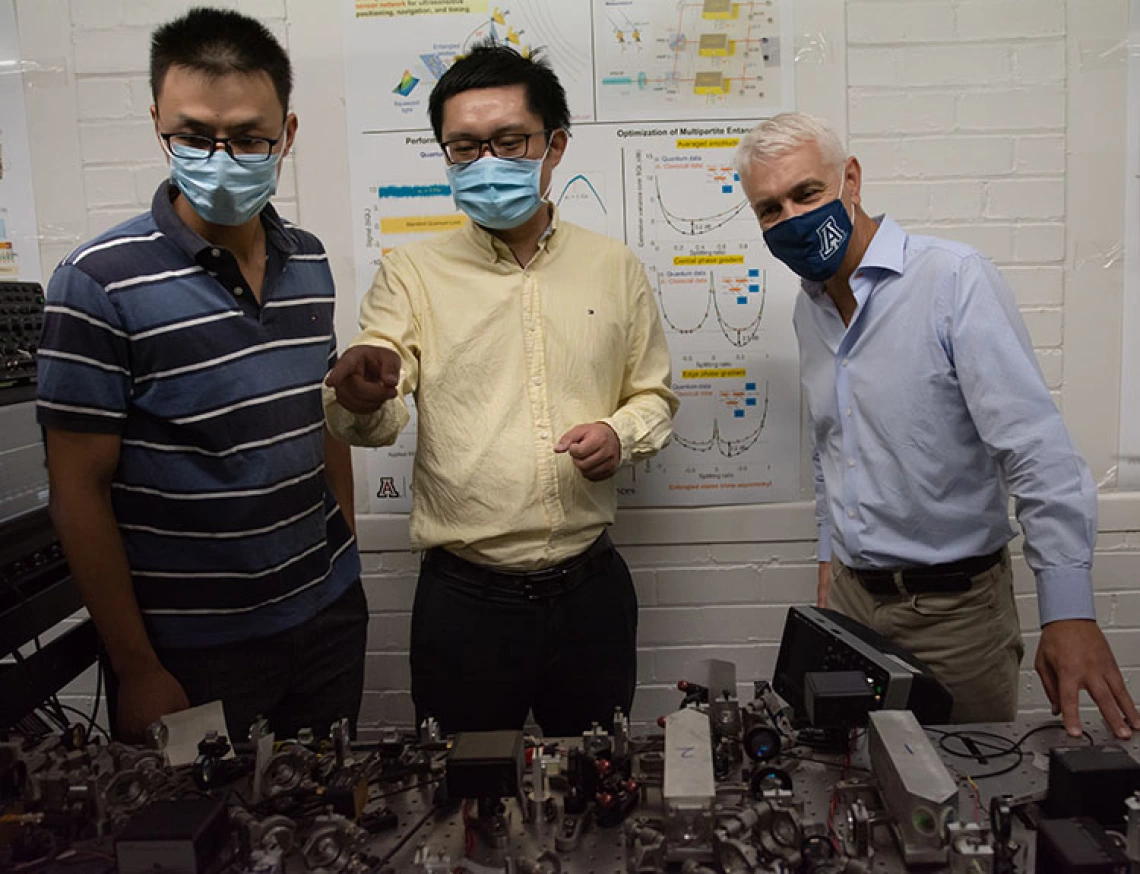Zhang Earns $1M Grant to Power Quantum Connections

MSE assistant professor Zheshen Zhang has won a $1 million Convergence Accelerator phase one grant from the National Science Foundation to move his basic quantum research into practice. C-Accel is new program that brings research teams together to address national-scale societal challenges. Zhang’s project team is one of 29 in the program’s second cohort.
The research team is creating a prototype of a network of sensors connected via quantum entanglement, laying the groundwork for academia, industry and public agencies to use entanglement-powered technologies.
“This entangled sensor arrays project is a great example of cross-cutting partnerships between academia, industry, and national laboratories,” said Pradeep Fulay, program director for NSF C-Accel and College of Engineering alum. “If successful, the research from this project could lead to quantum chips that can have an impact on technologies ranging from autonomous vehicles to secure navigation and imaging capabilities.”
Quantum entanglement involves linking two particles in such a way that whatever happens to one particle influences the other. The phenomenon is powerful for many reasons, including that it allows for simultaneous sharing of information. However, entangled atoms are extremely fragile: Even a slight environmental disturbance can break the entanglement. Working in the optical domain by entangling photons, or light particles, instead of atoms, makes for a stronger bond.
“Atoms interact with the environment all the time – like, a pen is made of atoms, so if I pick that up, I’m interacting with it physically,” Zhang said. “In comparison, entanglement carried by photons is quite robust, because photons typically do not interact with the environment in the same way – I can’t pick up a ray of light. But you can see sunlight shining on objects all around you.”
In June 2021, at the end of phase one, the team will participate in a pitch competition and a proposal evaluation. Selected teams will proceed to phase two, with potential funding up to $5 million for 24 months.
